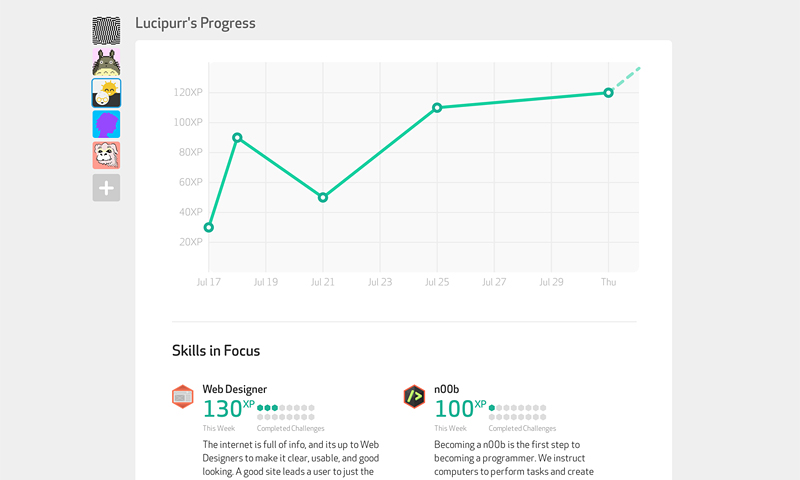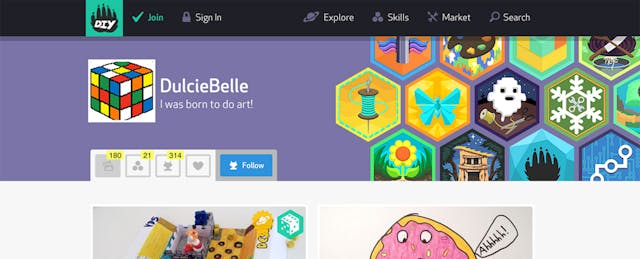With a following of 350,000 tinkerers across 180 countries, DIY makes no secret of its mission: to be the community where DIY (Do-It-Yourself) meets PBL (Project-Based Learning).
The startup, founded in 2011, offers what an online playground for next-generation boy and girl scouts. DIY wants kids to build and currently lists 121 “skills,” from Actor to Zoologist, that they can attain. Each skill consists of a series of hands-on projects; one of the Zoologist challenges, for instance, is to build a cardboard wildlife habitat. Kids share videos and photos of their work and earn digital badges for the skills they’ve mastered. (A physical badge can be purchased by their parents for $4.) They can also follow and publicly communicate with peers with whom they share interests.
“Our theory is that the best person to teach a nine-year old something is a 10-year old who just learned that skill,” says DIY co-founder and CEO, Zach Klein. The average age of an DIY user is 11.

Klein says the company initially targeted parents as the primary market. “We focused on families that wanted to use DIY as a framework for homeschooling or unschooling. Sometimes they used it to complement traditional schooling.”
But as project-based learning has gained traction in schools, Klein has seen an uptick in “schools that are increasingly using DIY as a framework for their PBL activities.” Students at Atlanta, GA-based Mount Vernon Presbyterian School, for instance, maintain DIY portfolios where they show off their projects.
Building off this popularity, DIY is launching its “Extra Awesome” membership program: For $9 per student per month, parents and teachers will get a dashboard that offers insights on how kids progress on the platform. Reports will show how kids are spending time on DIY, who they’re following and influencing, and how they transition and progress from one skill to the next. An “Activity Guide” will also recommend appropriate challenges for kids, based on their activity history.

For kids, being part of this Extra Awesome club means that every project they submit will be reviewed by a DIY mentor, who will offer feedback and advice. And--perhaps just as importantly--kids will get the physical badges mailed to them immediately after mastering a skill.
For teachers, the Extra Awesome membership will allow them to create student accounts, see an activity stream of what projects students are working on, and provide feedback. DIY.org is COPPA compliant and does not pass on user data to other learning management tools that a school may be using, assures Klein.
As education institutions of all levels--from elementary to journalism schools--rediscover the values of hands-on learning and “learning by doing,” Klein and his team of ten believe that socially-driven, project-based activities can teach skills immensely relevant that are traditional subjects taught in schools. He says he’s heard from “countless” teachers and camp counselors who want to mentor and teach skills on the platform.
If all goes as planned, Klein sees DIY serving kids--and adults--of all ages. “This will be a marketplace where people around the world can play a role in sharing and teaching skills.”


